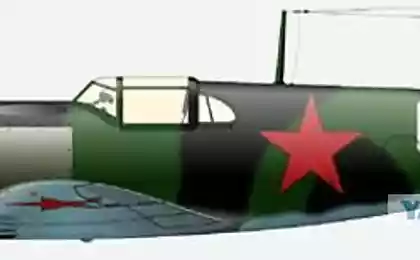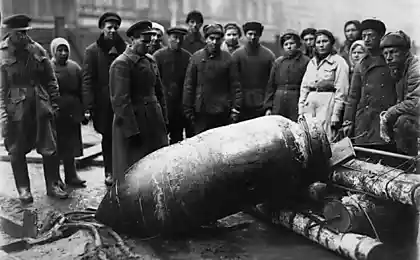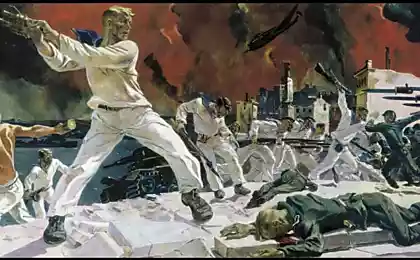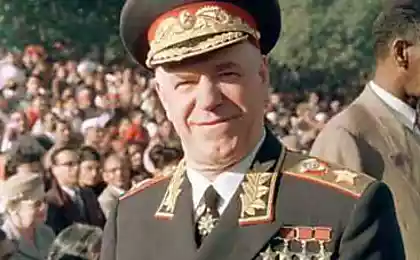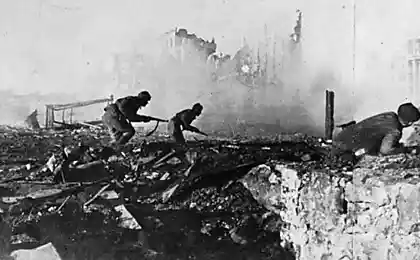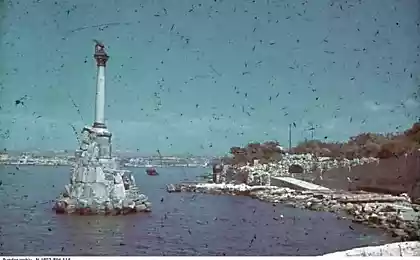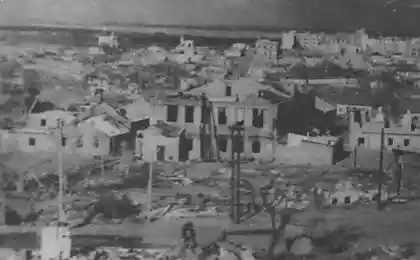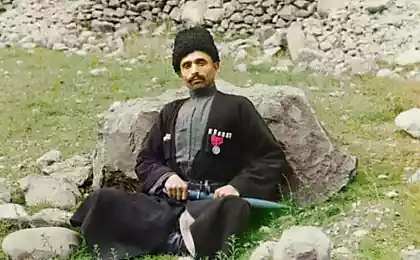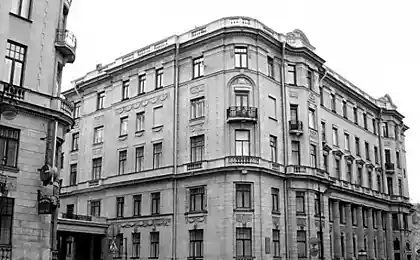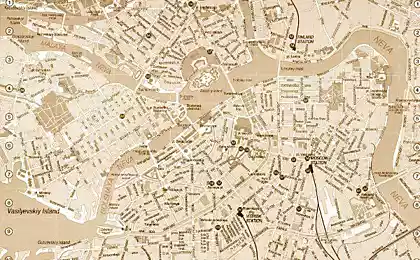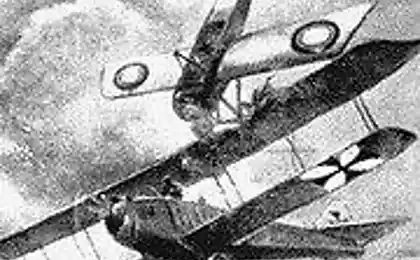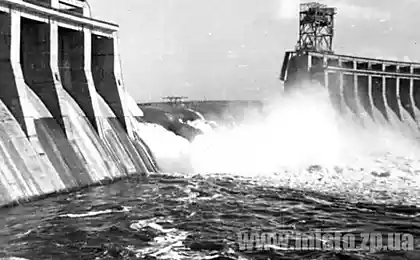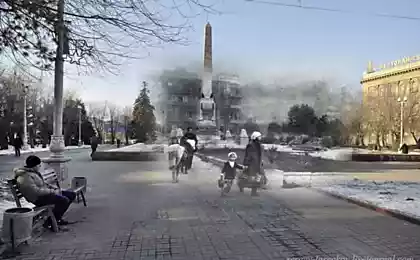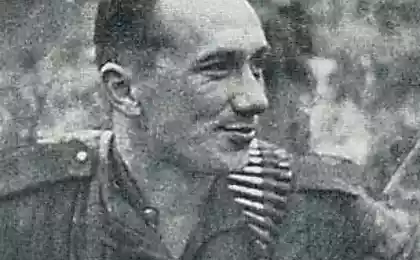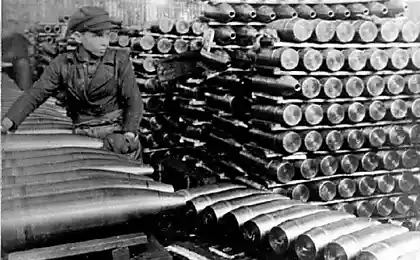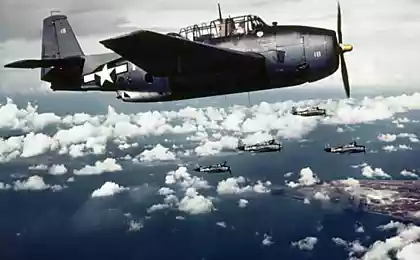592
1942: When the victory on the Volga seemed so close
«Die Welt», Germany
Kellerhof Sven (Sven Felix Kellerhoff)
70 years ago, the Wehrmacht already prepared a honorary award marks for the conquerors of Stalingrad and Goebbels exulted. However, signs of impending catastrophe 2nd Army were already visible.
70 years ago, Joseph Goebbels, reading British newspapers, experienced a rare feeling of satisfaction. To be more precise, he looked extracts from British and American newspapers, prepared by members of his staff: "In the US and in London is gradually becoming clear that would mean the loss of Stalingrad for the Anglo-Saxon military campaign».
National Socialist propaganda minister of the 20th September 1942 dictated stenographer to record their daily diary. "First of all, Times writes candidly about what devastating consequences arise if the Soviet military and offensive forces will be sterilized as a result of the cut-off from the Volga region" - said Goebbels. And in most other articles of the British press he asked the question: "Will the Soviet Union even after the loss of Stalingrad on the Volga River to continue the fight and to carry out offensive operations?»
Most Germans have not been configured as a positive. And it in no way was not only about a small number of people, who in their assessments did not rely on the official propaganda of the Third Reich, that is, Goebbels reports and daily reports of the High Command of the Wehrmacht. "In all seriousness, concern and tension" residents watched the fighting in Stalingrad, reported 21st September 1942 internal Secret Service SS Security Service (SD), describing the mass mood. "In general, people proceed from the fact that this struggle will require a very great sacrifice by our troops, and nothing like this before, they have not yet experienced", - emphasized in the report.
A large number of death notices
However, reports on the successful promotion of the troops in the south-eastern sector of the German eastern front instilled new hope: "You can expect that after the capture of Stalingrad just happen decisive turn, or" completion "of the fight in the east." "Estimates of compatriots" fluctuated "between strong hope and fear of disturbing." Anxiety many causes, above all, a large number of death notices of those pieces that were part located on the outskirts of Stalingrad the 6th Army.
And yet, no one on the home front could not afford those representative of horrific events that took place in those days in the Soviet industrial city on the banks of the Volga. Thirteenth in September 1942 began the German attack on the central part of the city; Soviet defenders okapalis ruins and turned each house into a small fortress. German 71st Infantry Division from Lower Saxony to less than 10 thousand people bore the brunt in this offensive.
The losses were huge: only the 19th September 1942 the total number of those killed in the infantry regiments IR 191, IR 194 and IR 211, formed the basis of this division has exceeded one thousand. To this must be added hundreds of very seriously injured and a seriously wounded soldiers who could no longer take part in hostilities and were forced to remain in insecure ambulances. Theoretically, the average soldier during the battle for Stalingrad, the central part remained alive about six days.
"We had absolutely no cover»
Equally fierce battles were important for a tactical point of view positions on the west bank of the Volga River, in the area of Mamayev Hill, north of the city center. In Germany, this is the place, received the sad fame, called "Height 102". Here was an opportunity to artillery fire at any position in Stalingrad. Half of German losses in the center of the city was due to artillery fire, who were mostly from this hill. Therefore, from the 12th September 1942 the 295th Infantry Division of Saxony-Anhalt tried to seize the Soviet fortified positions, but the decisive success never achieved. Even the authors of the official reports of the Wehrmacht after 11 days were forced to admit: "The fighting extremely fickle and hard. For example, the height of the three occupied our troops, but the enemy is constantly win it, and eventually it remained under the control of the enemy ».
20-year-old Wehrmacht soldiers Dieter Peeters (Dieter Peeters) from the Rhineland participated in these battles, and that's what he told them after more than 60 years: "After many days of fighting that took place with varying degrees of success, we have taken this height." However, he and his comrades had no opportunity to enjoy this success: "We had absolutely no cover, when we suddenly came under fire Stalinist authorities launchers were located on the opposite bank of the Volga." A soldier and a medic tried to train him to take refuge in the nearest lower dugout, but it was too small for two. "Peter lay down on my part, and thus to break the rocket he built for me additional protection from flying splinters in all directions." But in the end both of them were still alive then.
As for the other side, there is still a message of a British war correspondent, who described the situation on the Mamayev Hill: "The worst thing is that no one has no time to take care of the victims. There are literally piles of corpses lying before the barricades. " The losses of the Red Army, apparently, were three times greater than that of the Wehrmacht. In addition, Mamayev Kurgan was held a few battalions of the Soviet secret service NKVD, and are under constant German fire from the opposite bank of the Volga infantry regiments that were ill-equipped "Often they had one snap hook for two or three».
Huge losses on both sides
Although the 295th Division on 26 September 1942 has been replaced by the 100th Jaeger Division, the Wehrmacht did not manage to fully capture the Mamayev Kurgan. Its position on the Volga River leading to the eastern slope of the Red Army held until February 2, 1943, when the boiler in Stalingrad surrendered last German units.
The day after the replacement of the division commander of the 6th Army, General Friedrich Paulus shifted the emphasis of its occurrence. At the time, many of the buildings in the city center were under Soviet control, and "Height 102" remained a hotbed of resistance. However, Paulus in his offensive focused on the north to seize completely destroyed by artillery fire and turned into ruins industries. Twenty-Seventh in September 1942 launched the latest offensive of the Wehrmacht in the symbolically important city, which lasted four weeks, but the final results have not yielded. The attackers and defenders interwoven into one indissoluble knot, and the losses on both sides were terrible.
However, Joseph Goebbels exulted and 29th September 1942 during the next dictations made no secret of his hopes: "Now we are going to capture the northern part of Stalingrad; the southern part of it, we can say, is completely free from enemy forces. Now we have to wait for the results of our offensive in the northern part of which has already started to carry out our troops. " The minister of propaganda, it was clear that the yet to experience the German units on the banks of the Volga: "The Bolsheviks continued to put more effort and try to hold on to what else can hold. In respect of Stalingrad they realize that the possible loss of this city would mean for them is very great damage in terms of prestige ».
Source
Joseph Goebbels
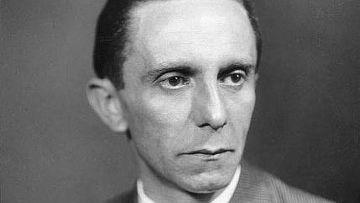
Source:
Kellerhof Sven (Sven Felix Kellerhoff)
70 years ago, the Wehrmacht already prepared a honorary award marks for the conquerors of Stalingrad and Goebbels exulted. However, signs of impending catastrophe 2nd Army were already visible.
70 years ago, Joseph Goebbels, reading British newspapers, experienced a rare feeling of satisfaction. To be more precise, he looked extracts from British and American newspapers, prepared by members of his staff: "In the US and in London is gradually becoming clear that would mean the loss of Stalingrad for the Anglo-Saxon military campaign».
National Socialist propaganda minister of the 20th September 1942 dictated stenographer to record their daily diary. "First of all, Times writes candidly about what devastating consequences arise if the Soviet military and offensive forces will be sterilized as a result of the cut-off from the Volga region" - said Goebbels. And in most other articles of the British press he asked the question: "Will the Soviet Union even after the loss of Stalingrad on the Volga River to continue the fight and to carry out offensive operations?»
Most Germans have not been configured as a positive. And it in no way was not only about a small number of people, who in their assessments did not rely on the official propaganda of the Third Reich, that is, Goebbels reports and daily reports of the High Command of the Wehrmacht. "In all seriousness, concern and tension" residents watched the fighting in Stalingrad, reported 21st September 1942 internal Secret Service SS Security Service (SD), describing the mass mood. "In general, people proceed from the fact that this struggle will require a very great sacrifice by our troops, and nothing like this before, they have not yet experienced", - emphasized in the report.
A large number of death notices
However, reports on the successful promotion of the troops in the south-eastern sector of the German eastern front instilled new hope: "You can expect that after the capture of Stalingrad just happen decisive turn, or" completion "of the fight in the east." "Estimates of compatriots" fluctuated "between strong hope and fear of disturbing." Anxiety many causes, above all, a large number of death notices of those pieces that were part located on the outskirts of Stalingrad the 6th Army.
And yet, no one on the home front could not afford those representative of horrific events that took place in those days in the Soviet industrial city on the banks of the Volga. Thirteenth in September 1942 began the German attack on the central part of the city; Soviet defenders okapalis ruins and turned each house into a small fortress. German 71st Infantry Division from Lower Saxony to less than 10 thousand people bore the brunt in this offensive.
The losses were huge: only the 19th September 1942 the total number of those killed in the infantry regiments IR 191, IR 194 and IR 211, formed the basis of this division has exceeded one thousand. To this must be added hundreds of very seriously injured and a seriously wounded soldiers who could no longer take part in hostilities and were forced to remain in insecure ambulances. Theoretically, the average soldier during the battle for Stalingrad, the central part remained alive about six days.
"We had absolutely no cover»
Equally fierce battles were important for a tactical point of view positions on the west bank of the Volga River, in the area of Mamayev Hill, north of the city center. In Germany, this is the place, received the sad fame, called "Height 102". Here was an opportunity to artillery fire at any position in Stalingrad. Half of German losses in the center of the city was due to artillery fire, who were mostly from this hill. Therefore, from the 12th September 1942 the 295th Infantry Division of Saxony-Anhalt tried to seize the Soviet fortified positions, but the decisive success never achieved. Even the authors of the official reports of the Wehrmacht after 11 days were forced to admit: "The fighting extremely fickle and hard. For example, the height of the three occupied our troops, but the enemy is constantly win it, and eventually it remained under the control of the enemy ».
20-year-old Wehrmacht soldiers Dieter Peeters (Dieter Peeters) from the Rhineland participated in these battles, and that's what he told them after more than 60 years: "After many days of fighting that took place with varying degrees of success, we have taken this height." However, he and his comrades had no opportunity to enjoy this success: "We had absolutely no cover, when we suddenly came under fire Stalinist authorities launchers were located on the opposite bank of the Volga." A soldier and a medic tried to train him to take refuge in the nearest lower dugout, but it was too small for two. "Peter lay down on my part, and thus to break the rocket he built for me additional protection from flying splinters in all directions." But in the end both of them were still alive then.
As for the other side, there is still a message of a British war correspondent, who described the situation on the Mamayev Hill: "The worst thing is that no one has no time to take care of the victims. There are literally piles of corpses lying before the barricades. " The losses of the Red Army, apparently, were three times greater than that of the Wehrmacht. In addition, Mamayev Kurgan was held a few battalions of the Soviet secret service NKVD, and are under constant German fire from the opposite bank of the Volga infantry regiments that were ill-equipped "Often they had one snap hook for two or three».
Huge losses on both sides
Although the 295th Division on 26 September 1942 has been replaced by the 100th Jaeger Division, the Wehrmacht did not manage to fully capture the Mamayev Kurgan. Its position on the Volga River leading to the eastern slope of the Red Army held until February 2, 1943, when the boiler in Stalingrad surrendered last German units.
The day after the replacement of the division commander of the 6th Army, General Friedrich Paulus shifted the emphasis of its occurrence. At the time, many of the buildings in the city center were under Soviet control, and "Height 102" remained a hotbed of resistance. However, Paulus in his offensive focused on the north to seize completely destroyed by artillery fire and turned into ruins industries. Twenty-Seventh in September 1942 launched the latest offensive of the Wehrmacht in the symbolically important city, which lasted four weeks, but the final results have not yielded. The attackers and defenders interwoven into one indissoluble knot, and the losses on both sides were terrible.
However, Joseph Goebbels exulted and 29th September 1942 during the next dictations made no secret of his hopes: "Now we are going to capture the northern part of Stalingrad; the southern part of it, we can say, is completely free from enemy forces. Now we have to wait for the results of our offensive in the northern part of which has already started to carry out our troops. " The minister of propaganda, it was clear that the yet to experience the German units on the banks of the Volga: "The Bolsheviks continued to put more effort and try to hold on to what else can hold. In respect of Stalingrad they realize that the possible loss of this city would mean for them is very great damage in terms of prestige ».
Source
Joseph Goebbels

Source:
